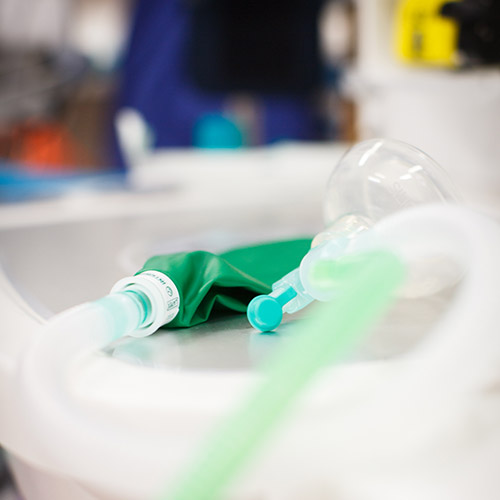Side effects
What are the side effects of anaesthesia?
‘It’s the anaesthetic’
Many symptoms and complaints get ascribed to anaesthesia, often by well-meaning surgeons, nurses, family doctors, friends and relatives. This most often occurs when the real cause of the problem is not obvious. In many cases the complaint is not actually related to the anaesthetic. However, if you have such a concern, you should contact your Anaesthetist and seek an explanation.
There are some common reactions that people may have after an operation and anaesthetic.

Common side effects
Nausea
Nausea and vomiting after anaesthesia are usually only transient. If you have been sick after previous anaesthetics or if you are prone to motion sickness it is important you let your Anaesthetist know prior to your anaesthetic, as there are modifications that may be made to your anaesthetic plan to minimise your risk.
Shivering and feeling cold
Some anaesthetic medications can make you shiver and feel cold whilst you are emerging from anaesthesia. Every effort is made to keep you warm during your operation with special warming blankets and warm fluids, yet some operations will make you quite cold. If you are shivering or cold in recovery we will continue to warm you until you no longer feel uncomfortable.
Pain
Your anaesthetic plan will include trying to make sure that you wake after your operation as comfortable and pain-free as possible. However, people vary greatly with their pain relief requirements for surgery and pain control techniques may need to be adjusted. If you wake with pain in recovery, you will be given extra pain relief quickly.
Skin bruising
Commonly there may be bruises and discomfort at the site of an intravenous drip or other injections.
Blurry vision
Anaesthetists take a lot of care to protect your eyes during your anaesthetic.
Your vision may be slightly blurred as you wake from your anesthetic due to a combination of the anaesthetic drugs used and the eye lubricant to protect your eyes whilst you are asleep.
Other injuries to eyes can include accidental scratching of the surface of the eye by the patient as they are waking from anaesthesia. Damage is usually mild and should improve over several days.
Dental damage
Occasionally teeth may get damaged during an anaesthetic. Please let your Anaesthetist know if you have loose teeth, or dental treatments such as crowns or bridgework. If you are at particular risk of dental damage your Anaesthetist will often discuss this with you.
Uncommon/rare side effects
Blindness is extremely rare but is more common in some instances such as during spinal surgery when you are lying face down for a period of time. Your Anaesthetist will discuss this complication if you are having a procedure that increases you risk.
Please ask any questions that you would like to discuss.
Sometimes the operation/procedure you have consented to undertake involves placing your body in special positions. Nerves can be compressed or stretched with positioning. Your Anaesthetist, surgeon and operating theatre staff always try to minimise this risk by making sure these areas are well padded and that nerves are not stretched.
Although uncommon, every time you are exposed to new medications there is a small chance that you may have a reaction. This risk is the same with anaesthetic medications. These reactions can vary from a rash to more serious breathing and blood pressure problems. If you have one of these reactions your Anaesthetist is trained to manage this situation immediately.
Anaesthesia can cause breathing problems. These problems are more common in people with pre-existing asthma or other medical problems such as emphysema or obstructive sleep apnoea. Another serious complication called aspiration can occur if stomach contents get into the lungs and damage them. This is more likely with emergency surgery or when inadequate fasting has occurred prior to your operation.
Strokes occur when there is an interruption of blood supply to the brain, and heart attacks when there is interruption of blood supply to heart muscle. They are uncommon in patients that are fit prior to surgery. At-risk patients are those with a previous history of strokes, heart disease, diabetes and high blood pressure.
Death due to anaesthetic complications is extremely rare. For a fit and well patient the risk is approximately 1 in 100 000. For older patients with multiple medical conditions the risk can be significantly higher but is still rare.
Nerve blocks (numbing a region of your body e.g. leg, arm), spinal blocks or epidurals are sometimes used as part of the anaesthetic. While these procedures are very safe, rare complications such as nerve damage due to the needle, bleeding or infection can occur. The numbness and weakness is usually temporary but may be permanent in extremely rare cases.
